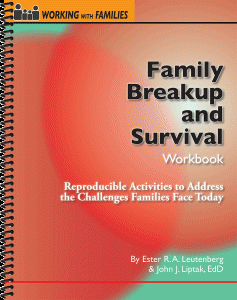My relationship is not working.
With apologies to Mr. Shakespeare, what should I do next?
For years experts on the subject have placed the divorce rate in the U.S. at around 50%. Half of those being married will end up divorced. Yikes. Not the most hopeful statistic for those about to marry. Where does this number come from and is it accurate?
It turns out there are four ways to calculate the divorce rate here in the US.
1. Crude Divorce Rate. The age-adjusted crude divorce rate is currently thirteen divorces for every 1,000 people age fifteen and older.
2. Percent Ever Divorced. This is the percentage of ever-divorced adults in a population.
3. Refined Divorce Rate. This is the number of divorces per 1,000 married women.
4. Cohort Measure Rate. This is the “40-50 percent” number that most people cite. It is not a hard, objective number, but an educated projection. It is calculated by looking at a particular “cohort”—a large group of people marrying within a particular measure of time—relative to general life-tables. In short, it comes from looking at divorce trends of the last few decades (those of earlier cohorts) and applying these numbers to couples marrying today, the current cohort.
Two experts, the University of Denver’s Scott Stanley and Dr. Paul Amato of the National Healthy Marriage Resource Center believe that the current divorce rate is 40 to 45%. They also forecast that as baby-boomers (who have maintained the highest divorce rate ever) age out of the model that percentage will continue to go down dramatically.
Am I ready to become part of that static as my relationship seems to be unreparable? Is there anything that can help make that awful decision to divorce or not to divorce easier? No. Is there a way to clarify your position in your mind? Yes. Ask yourself the following questions. Ponder your answers deeply. Write them down. Put them away for a week and read them again. The questions will point you in the right direction.
Don’t be hesitant about seeking a professional who can help you determine what your answers are really telling you. Even if you must go by yourself, find an expert in marital counseling and wholeheartedly participate. This is a time to be brutally honest with yourself and those around you. It is also a time to prepare for the future. Being sure about the direction your marriage takes will help you take the next steps knowing you’ve made the right choice. Good Luck!
To Stay or to Go?
Excerpted from Family Breakup and Survival
by Ester R.A. Leutenberg and John J. Liptak, EdD
You got to know when to hold ’em; know when to fold ’em . . .”
~ Kenny Rogers

Ending a committed relationship is a difficult and emotional decision. As you think about staying or leaving, focus on the impact of your decision for yourself, your partner and your family. Instead of thinking only about breaking up as a yes or no, evaluate the quality of the relationship.
Here are aspects to consider about your present situation. Read the questions and write your answers down. Be clear, be honest, be fair. After you have completed the list, put it away for a few days. Take it out and reread what you wrote. Have you changed your mind? Take the answers with you when you go to a family counselor and get help determining what they might mean. Let the answers help you decide your next step.
- Trust – How safe do you feel physically?
- Trust—How safe do you feel emotionally?
- Safety– How safe do you feel sexually?
- Love– Is your love romantic, platonic, intermittent, evaporating, or other?
- Cooperation– How do you help each other with day-to-day responsibilities?
- Respect– What level of respect does your partner have for you?
- Respect– What level of respect do you have for your partner?
- Physical intimacy– How are you and your partner “in sync” about intimacy and sex?
- Physical intimacy—How are you and your partner not “in sync” about intimacy and sex?
- Physical intimacy– How would you describe your sex life?
- Communication– Do you talk to each other about finances?
- Communication – Are you only sharing information or are you able to discuss feelings, worries, and excitement?
- Values – How much do you agree on ethical and moral issues? How does that influence your relationship?
- Religion and spirituality– Do you share a religious and/or spiritual belief system. If you do not, how that works in your relationship?
- Raising children– If you have children, describe how you have or have not been able to find common ground regarding discipline, guidance, medical decisions, educational plans and goals.
- Family of origin relationships – Do you believe you and/or your partner are more loyal to your own families–of-origin than to each other?
- In-law relationships – How have you or have you not worked out relationships that avoid high levels of conflict with each other’s families?
- In-Law relationships– Do you have close relationships with your in-laws? Is that likely to continue if your relationship breaks up? Why or why not?
- Finances– Are you both contributing to the family economy, either by working outside the home or inside? How does that work for you?
- Finances– How do you agree or disagree on methods of spending money?
- Finances– How do you agree or disagree on a budget for saving money?
- Arguing– Do you and your partner stick to the issue at hand when you argue?
- Arguing– Do you or your partner bring up wrong-doings of the past when arguing?
- Arguing– Does your fighting ever become physical?
- Arguing– When you are arguing with your partner, how safe does everyone in your family feel?
- Future– How do you believe your life (and that of your children, if applicable) would be better without this committed relationship?
- Future– How do you believe your life (and that of your children, if applicable) would be worse without this committed relationship?

